ABCD 2025
The Biennial Congress of the Italian Association of
Cell Biology and Differentiation
Paestum, Italy • 24-26 September 2025

ABCD 2025
The Biennial Congress of the Italian Association of
Cell Biology and Differentiation
Paestum, Italy • 24-26 September 2025

ABCD 2025
The Biennial Congress of the
Italian Association of Cell Biology
and Differentiation
Paestum, Italy • 24-26 September 2025
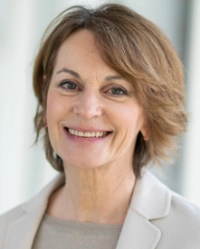 Patrizia Agostinis (PA) received a Master in Biology from the University of Padua (Italy) and a PhD in BioMedical Science from the University of Leuven KU Leuven. After a short postdoctoral period, supported by EMBO fellowship, she became an independent Group Leader of the Research Foundation (FWO) Flanders-Belgium. She is currently Full Professor and head of the Cell Death Research & Therapy lab at the Department of Cellular and Molecular Medicine of the KU Leuven, and a Group Leader of the Center for Cancer Biology of the VIB-KU Leuven.
Patrizia Agostinis (PA) received a Master in Biology from the University of Padua (Italy) and a PhD in BioMedical Science from the University of Leuven KU Leuven. After a short postdoctoral period, supported by EMBO fellowship, she became an independent Group Leader of the Research Foundation (FWO) Flanders-Belgium. She is currently Full Professor and head of the Cell Death Research & Therapy lab at the Department of Cellular and Molecular Medicine of the KU Leuven, and a Group Leader of the Center for Cancer Biology of the VIB-KU Leuven.
Her group made important discoveries and contributions to the cancer biology and immunotherapy fields by unravelling the molecular underpinnings and the robust in vivo anticancer vaccination properties of immunogenic cancer cell death (ICD) and how endothelial cell-intrinsic trafficking/degradative pathways impact tumor angiogenesis, dissemination and chemo response. As a recognition of the key contributions of her group to these fields, PA was elected President of the European Cell Death (ECDO) Society, honorary member of the European Academy of Tumor Immunology, and received the 2019 Outstanding Achievement Award of the International Cell Death Society. The current research focus of her lab is to unveil how key cell-fate decision networks (i.e. regulated cell death pathways, metabolic and quality control mechanisms) in cancer cells and stromal cells impact the tumor microenvironment, immunosurveillance, and (immuno)therapy responses. By integrating information derived from dynamic and multi-layered studies at molecular, single cell, and organism levels, the PA lab strives to establish new connections and looks at the complexity of cancer from different angles, with the belief that answering fundamental questions of cancer cell biology is central to introducing new therapeutic opportunities against cancer.
PA is also a strong advocate for Women in Science and mentor of several PhD students and Postdoctoral researchers who have successfully continued their independent career as scientists or specialists.
 Patrizia Agostinis (PA) received a Master in Biology from the University of Padua (Italy) and a PhD in BioMedical Science from the University of Leuven KU Leuven. After a short postdoctoral period, supported by EMBO fellowship, she became an independent Group Leader of the Research Foundation (FWO) Flanders-Belgium. She is currently Full Professor and head of the Cell Death Research & Therapy lab at the Department of Cellular and Molecular Medicine of the KU Leuven, and a Group Leader of the Center for Cancer Biology of the VIB-KU Leuven.
Patrizia Agostinis (PA) received a Master in Biology from the University of Padua (Italy) and a PhD in BioMedical Science from the University of Leuven KU Leuven. After a short postdoctoral period, supported by EMBO fellowship, she became an independent Group Leader of the Research Foundation (FWO) Flanders-Belgium. She is currently Full Professor and head of the Cell Death Research & Therapy lab at the Department of Cellular and Molecular Medicine of the KU Leuven, and a Group Leader of the Center for Cancer Biology of the VIB-KU Leuven.
Her group made important discoveries and contributions to the cancer biology and immunotherapy fields by unravelling the molecular underpinnings and the robust in vivo anticancer vaccination properties of immunogenic cancer cell death (ICD) and how endothelial cell-intrinsic trafficking/degradative pathways impact tumor angiogenesis, dissemination and chemo response. As a recognition of the key contributions of her group to these fields, PA was elected President of the European Cell Death (ECDO) Society, honorary member of the European Academy of Tumor Immunology, and received the 2019 Outstanding Achievement Award of the International Cell Death Society. The current research focus of her lab is to unveil how key cell-fate decision networks (i.e. regulated cell death pathways, metabolic and quality control mechanisms) in cancer cells and stromal cells impact the tumor microenvironment, immunosurveillance, and (immuno)therapy responses. By integrating information derived from dynamic and multi-layered studies at molecular, single cell, and organism levels, the PA lab strives to establish new connections and looks at the complexity of cancer from different angles, with the belief that answering fundamental questions of cancer cell biology is central to introducing new therapeutic opportunities against cancer.
PA is also a strong advocate for Women in Science and mentor of several PhD students and Postdoctoral researchers who have successfully continued their independent career as scientists or specialists.
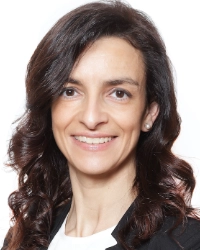 Milena Bellin is Full Professor of Genetics and Group Leader at the Dept. of Biology, University of Padua (Italy), and Principal Investigator at the Dept. of Anatomy and Embryology, Leiden University Medical Center (The Netherlands). She pioneered the use of human induced pluripotent stem cells (hiPSCs) to study inherited cardiac diseases. Her research ranges from developing three-dimensional multicellular cardiac organoids for modelling inherited cardiac diseases to the development of hiPSC-based platforms for drug-screening and safety pharmacology. During her career, she has been granted with a Marie Curie fellowship (2012), FEBS Anniversary Prize for outstanding achievements in Biochemistry and Molecular Biology (2016), and an ERC Consolidator Grant (2020). She is part of the Institute for human Organ and Disease Model technologies.
Milena Bellin is Full Professor of Genetics and Group Leader at the Dept. of Biology, University of Padua (Italy), and Principal Investigator at the Dept. of Anatomy and Embryology, Leiden University Medical Center (The Netherlands). She pioneered the use of human induced pluripotent stem cells (hiPSCs) to study inherited cardiac diseases. Her research ranges from developing three-dimensional multicellular cardiac organoids for modelling inherited cardiac diseases to the development of hiPSC-based platforms for drug-screening and safety pharmacology. During her career, she has been granted with a Marie Curie fellowship (2012), FEBS Anniversary Prize for outstanding achievements in Biochemistry and Molecular Biology (2016), and an ERC Consolidator Grant (2020). She is part of the Institute for human Organ and Disease Model technologies.
 Milena Bellin is Full Professor of Genetics and Group Leader at the Dept. of Biology, University of Padua (Italy), and Principal Investigator at the Dept. of Anatomy and Embryology, Leiden University Medical Center (The Netherlands). She pioneered the use of human induced pluripotent stem cells (hiPSCs) to study inherited cardiac diseases. Her research ranges from developing three-dimensional multicellular cardiac organoids for modelling inherited cardiac diseases to the development of hiPSC-based platforms for drug-screening and safety pharmacology. During her career, she has been granted with a Marie Curie fellowship (2012), FEBS Anniversary Prize for outstanding achievements in Biochemistry and Molecular Biology (2016), and an ERC Consolidator Grant (2020). She is part of the Institute for human Organ and Disease Model technologies.
Milena Bellin is Full Professor of Genetics and Group Leader at the Dept. of Biology, University of Padua (Italy), and Principal Investigator at the Dept. of Anatomy and Embryology, Leiden University Medical Center (The Netherlands). She pioneered the use of human induced pluripotent stem cells (hiPSCs) to study inherited cardiac diseases. Her research ranges from developing three-dimensional multicellular cardiac organoids for modelling inherited cardiac diseases to the development of hiPSC-based platforms for drug-screening and safety pharmacology. During her career, she has been granted with a Marie Curie fellowship (2012), FEBS Anniversary Prize for outstanding achievements in Biochemistry and Molecular Biology (2016), and an ERC Consolidator Grant (2020). She is part of the Institute for human Organ and Disease Model technologies.
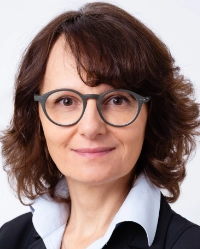 Dr. Boletta graduated in Biology at the University of Pavia, Italy. She carried out her Ph.D-equivalent training at the Mario Negri Institute in Bergamo, Italy working on gene delivery to the kidney prior to moving to the Johns Hopkins University, Baltimore, MD, USA for her post-doctoral training. Here, she started her scientific activity on Polycystic Kidney Disease, the most common of all human ciliopathies. These are a class of disorders caused by alterations in the function of a solitary, microtubule-based organelle present on most cells of the human body, called the primary cilium.
Dr. Boletta graduated in Biology at the University of Pavia, Italy. She carried out her Ph.D-equivalent training at the Mario Negri Institute in Bergamo, Italy working on gene delivery to the kidney prior to moving to the Johns Hopkins University, Baltimore, MD, USA for her post-doctoral training. Here, she started her scientific activity on Polycystic Kidney Disease, the most common of all human ciliopathies. These are a class of disorders caused by alterations in the function of a solitary, microtubule-based organelle present on most cells of the human body, called the primary cilium.
She moved back to Italy thanks to a Telethon Career Program to establish her lab at the San Raffaele Scientific Institute in Milan. Here, she covered the position of Director for the Division of Genetics and Cell Biology (2014-2019) and she is currently Head of Research Unit. Over the years her lab has developed several cellular and animal models with the aim of studying Polycystins function and the pathophysiology of ADPKD. Her laboratory has identified metabolic reprogramming as an important feature of the disease, offering several new options for therapy as well as novel insights into the pathogenesis of ADPKD. More recently, her lab has established a role for primary cilia in sensing nutrient availability and in controlling mitochondrial activity.
She received numerous prizes for her activities the most notable a Marie Cure Excellence Team Leader Award by the European Union, and the Lillian-Jean Kaplan Award for discoveries in PKD by the International Society of Nephrology. She recently was awarded an ERC advanced grant to study the cross-talk between cilia and mitochondria.
 Dr. Boletta graduated in Biology at the University of Pavia, Italy. She carried out her Ph.D-equivalent training at the Mario Negri Institute in Bergamo, Italy working on gene delivery to the kidney prior to moving to the Johns Hopkins University, Baltimore, MD, USA for her post-doctoral training. Here, she started her scientific activity on Polycystic Kidney Disease, the most common of all human ciliopathies. These are a class of disorders caused by alterations in the function of a solitary, microtubule-based organelle present on most cells of the human body, called the primary cilium.
Dr. Boletta graduated in Biology at the University of Pavia, Italy. She carried out her Ph.D-equivalent training at the Mario Negri Institute in Bergamo, Italy working on gene delivery to the kidney prior to moving to the Johns Hopkins University, Baltimore, MD, USA for her post-doctoral training. Here, she started her scientific activity on Polycystic Kidney Disease, the most common of all human ciliopathies. These are a class of disorders caused by alterations in the function of a solitary, microtubule-based organelle present on most cells of the human body, called the primary cilium.
She moved back to Italy thanks to a Telethon Career Program to establish her lab at the San Raffaele Scientific Institute in Milan. Here, she covered the position of Director for the Division of Genetics and Cell Biology (2014-2019) and she is currently Head of Research Unit. Over the years her lab has developed several cellular and animal models with the aim of studying Polycystins function and the pathophysiology of ADPKD. Her laboratory has identified metabolic reprogramming as an important feature of the disease, offering several new options for therapy as well as novel insights into the pathogenesis of ADPKD. More recently, her lab has established a role for primary cilia in sensing nutrient availability and in controlling mitochondrial activity.
She received numerous prizes for her activities the most notable a Marie Cure Excellence Team Leader Award by the European Union, and the Lillian-Jean Kaplan Award for discoveries in PKD by the International Society of Nephrology. She recently was awarded an ERC advanced grant to study the cross-talk between cilia and mitochondria.
 After a Degree in Theoretical Physics from the University of Turin, in 2001 Francesca completed a PhD in Biophysics and Applied Mathematics at the Institute of Cancer Research, University of London. After this, Francesca joined the ICR, the Gray Cancer Institute and the MRC Clinical Trials Unit, London, as postdoctoral researcher in imaging and omics projects.
After a Degree in Theoretical Physics from the University of Turin, in 2001 Francesca completed a PhD in Biophysics and Applied Mathematics at the Institute of Cancer Research, University of London. After this, Francesca joined the ICR, the Gray Cancer Institute and the MRC Clinical Trials Unit, London, as postdoctoral researcher in imaging and omics projects.
In 2006 Francesca joined the University of Oxford, where she spent the next 16 years and still hold a honorary position: in 2013 she became group leader funded by Cancer Research UK and the UK Medical Research Council, in 2015 she was appointed Associated Professor, in 2016 she established the Computational Biology and Integrative Genomics Lab, and in 2020 she became Full Professor.
Since February 2022 Francesca holds a Full Professorship at the Department of Computing Sciences at Bocconi University in Milan, where she has a research programme on the application of Artificial Intelligence in Life Sciences, and teaches undergraduate and post graduate courses in the Artificial Intelligence and Computing Sciences MSc and BSc courses.
Francesca’s research brings together computing sciences and omics to understand complex disease such as cancer. She has authored over 150 resarch publications, several in high impact journals (Google Scholar, ORCID). In 2018 Francesca has been awarded a European Research Council Award, microC, developing new computational techniques that exploit multi-omics data to decode the interaction and evolution of heterogeneous population of cells in a dynamic microenvironment.
Francesca is also committed to help forming the next generation of biomedical scientists, providing them with the necessary knowledge to tackle the big challenges in biology and medicine. Additionally to her position at Bocconi University, she has been teaching at international Advanced Schools and Universities, including the international MSc course at the University of Tsukuba, Japan, and the Advanced Courses at the Wellcome Genome Campus, University of Cambridge, UK.
Francesca has been serving on several national and international committees, including several funding agencies, and she has been a member of governative evaluation panels, including the UK REF-2021 Biological Science Panel and Interdisciplinary Advisory Panel.
 After a Degree in Theoretical Physics from the University of Turin, in 2001 Francesca completed a PhD in Biophysics and Applied Mathematics at the Institute of Cancer Research, University of London. After this, Francesca joined the ICR, the Gray Cancer Institute and the MRC Clinical Trials Unit, London, as postdoctoral researcher in imaging and omics projects.
After a Degree in Theoretical Physics from the University of Turin, in 2001 Francesca completed a PhD in Biophysics and Applied Mathematics at the Institute of Cancer Research, University of London. After this, Francesca joined the ICR, the Gray Cancer Institute and the MRC Clinical Trials Unit, London, as postdoctoral researcher in imaging and omics projects.
In 2006 Francesca joined the University of Oxford, where she spent the next 16 years and still hold a honorary position: in 2013 she became group leader funded by Cancer Research UK and the UK Medical Research Council, in 2015 she was appointed Associated Professor, in 2016 she established the Computational Biology and Integrative Genomics Lab, and in 2020 she became Full Professor.
Since February 2022 Francesca holds a Full Professorship at the Department of Computing Sciences at Bocconi University in Milan, where she has a research programme on the application of Artificial Intelligence in Life Sciences, and teaches undergraduate and post graduate courses in the Artificial Intelligence and Computing Sciences MSc and BSc courses.
Francesca’s research brings together computing sciences and omics to understand complex disease such as cancer. She has authored over 150 resarch publications, several in high impact journals (Google Scholar, ORCID). In 2018 Francesca has been awarded a European Research Council Award, microC, developing new computational techniques that exploit multi-omics data to decode the interaction and evolution of heterogeneous population of cells in a dynamic microenvironment.
Francesca is also committed to help forming the next generation of biomedical scientists, providing them with the necessary knowledge to tackle the big challenges in biology and medicine. Additionally to her position at Bocconi University, she has been teaching at international Advanced Schools and Universities, including the international MSc course at the University of Tsukuba, Japan, and the Advanced Courses at the Wellcome Genome Campus, University of Cambridge, UK.
Francesca has been serving on several national and international committees, including several funding agencies, and she has been a member of governative evaluation panels, including the UK REF-2021 Biological Science Panel and Interdisciplinary Advisory Panel.
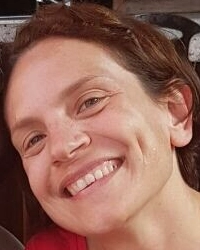 Annalisa Fico is a Senior Researcher in Stem Cell Biology at the Institute of Genetics and Biophysics (IGB-ABT), CNR. She earned her PhD from the University of Naples and pursued postdoctoral training at the IBDM in France. Since joining IGB-ABT in 2011, her research has centered on the molecular and cellular mechanisms underlying cell plasticity, with a focus on signaling, metabolism, and post-transcriptional regulation in development and neurodevelopmental disorders. More recently, she has been employing stem cell–based models to investigate the role of long non-coding RNAs in early development, an area that remains largely unexplored.
Annalisa Fico is a Senior Researcher in Stem Cell Biology at the Institute of Genetics and Biophysics (IGB-ABT), CNR. She earned her PhD from the University of Naples and pursued postdoctoral training at the IBDM in France. Since joining IGB-ABT in 2011, her research has centered on the molecular and cellular mechanisms underlying cell plasticity, with a focus on signaling, metabolism, and post-transcriptional regulation in development and neurodevelopmental disorders. More recently, she has been employing stem cell–based models to investigate the role of long non-coding RNAs in early development, an area that remains largely unexplored.
 Annalisa Fico is a Senior Researcher in Stem Cell Biology at the Institute of Genetics and Biophysics (IGB-ABT), CNR. She earned her PhD from the University of Naples and pursued postdoctoral training at the IBDM in France. Since joining IGB-ABT in 2011, her research has centered on the molecular and cellular mechanisms underlying cell plasticity, with a focus on signaling, metabolism, and post-transcriptional regulation in development and neurodevelopmental disorders. More recently, she has been employing stem cell–based models to investigate the role of long non-coding RNAs in early development, an area that remains largely unexplored.
Annalisa Fico is a Senior Researcher in Stem Cell Biology at the Institute of Genetics and Biophysics (IGB-ABT), CNR. She earned her PhD from the University of Naples and pursued postdoctoral training at the IBDM in France. Since joining IGB-ABT in 2011, her research has centered on the molecular and cellular mechanisms underlying cell plasticity, with a focus on signaling, metabolism, and post-transcriptional regulation in development and neurodevelopmental disorders. More recently, she has been employing stem cell–based models to investigate the role of long non-coding RNAs in early development, an area that remains largely unexplored.
 Alessandro is actively engaged in stem cell research for regenerative medicine and brain repair. He earned his Ph.D. in Molecular and Cellular Biotechnology in Italy, training at the National Research Council (CNR). During his Ph.D., his research focused on extrinsic and intrinsic regulatory networks that govern the balance between self-renewal and differentiation of pluripotent stem cells (PSCs).
Alessandro is actively engaged in stem cell research for regenerative medicine and brain repair. He earned his Ph.D. in Molecular and Cellular Biotechnology in Italy, training at the National Research Council (CNR). During his Ph.D., his research focused on extrinsic and intrinsic regulatory networks that govern the balance between self-renewal and differentiation of pluripotent stem cells (PSCs).
Following his Ph.D., Alessandro spent five years as a postdoctoral researcher under the supervision of Prof. Malin Parmar at Lund University, Sweden, a leading expert in cell-based therapies for neurodegenerative diseases. During this time, he expanded his expertise in cutting-edge technologies, including in vivo and in vitro human 3D models, as well as cell replacement therapies for clinical applications.
Currently, Alessandro is an Associate Professor of Molecular Biology at the University of Naples Federico II. His research focuses on unraveling the molecular mechanisms that drive the differentiation of human stem cells into specific neuronal subtypes. By leveraging single-cell omics and advanced stem cell-based models, he aims to deepen our understanding of these processes and advance the development of novel therapeutic strategies.
 Alessandro is actively engaged in stem cell research for regenerative medicine and brain repair. He earned his Ph.D. in Molecular and Cellular Biotechnology in Italy, training at the National Research Council (CNR). During his Ph.D., his research focused on extrinsic and intrinsic regulatory networks that govern the balance between self-renewal and differentiation of pluripotent stem cells (PSCs).
Alessandro is actively engaged in stem cell research for regenerative medicine and brain repair. He earned his Ph.D. in Molecular and Cellular Biotechnology in Italy, training at the National Research Council (CNR). During his Ph.D., his research focused on extrinsic and intrinsic regulatory networks that govern the balance between self-renewal and differentiation of pluripotent stem cells (PSCs).
Following his Ph.D., Alessandro spent five years as a postdoctoral researcher under the supervision of Prof. Malin Parmar at Lund University, Sweden, a leading expert in cell-based therapies for neurodegenerative diseases. During this time, he expanded his expertise in cutting-edge technologies, including in vivo and in vitro human 3D models, as well as cell replacement therapies for clinical applications.
Currently, Alessandro is an Associate Professor of Molecular Biology at the University of Naples Federico II. His research focuses on unraveling the molecular mechanisms that drive the differentiation of human stem cells into specific neuronal subtypes. By leveraging single-cell omics and advanced stem cell-based models, he aims to deepen our understanding of these processes and advance the development of novel therapeutic strategies.
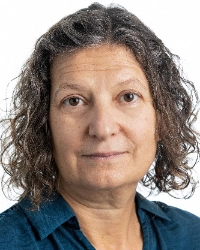 After obtaining her doctorate from the University of Heidelberg in Germany and a postdoctoral fellowship at the University of Toronto, Canada, working on elucidating protein-DNA interactions at high resolution in solution, Petra pursued a second postdoc at the Marie Curie Research Institute in Oxted, Surrey, UK, studying core-promoter-specific regulation of transcription. She then moved into scientific publishing and became the Editor of Trends of Biotechnology, before joining The Journal of Cell Science in 2010, initially as Reviews Editor and subsequently Senior Editor, where she was responsible for the Front Section of the journal. In January 2024, Petra joined Nature Genetics and Nature Cell Biology where she handles Reviews and other commissioned content across both journals.
After obtaining her doctorate from the University of Heidelberg in Germany and a postdoctoral fellowship at the University of Toronto, Canada, working on elucidating protein-DNA interactions at high resolution in solution, Petra pursued a second postdoc at the Marie Curie Research Institute in Oxted, Surrey, UK, studying core-promoter-specific regulation of transcription. She then moved into scientific publishing and became the Editor of Trends of Biotechnology, before joining The Journal of Cell Science in 2010, initially as Reviews Editor and subsequently Senior Editor, where she was responsible for the Front Section of the journal. In January 2024, Petra joined Nature Genetics and Nature Cell Biology where she handles Reviews and other commissioned content across both journals.
 After obtaining her doctorate from the University of Heidelberg in Germany and a postdoctoral fellowship at the University of Toronto, Canada, working on elucidating protein-DNA interactions at high resolution in solution, Petra pursued a second postdoc at the Marie Curie Research Institute in Oxted, Surrey, UK, studying core-promoter-specific regulation of transcription. She then moved into scientific publishing and became the Editor of Trends of Biotechnology, before joining The Journal of Cell Science in 2010, initially as Reviews Editor and subsequently Senior Editor, where she was responsible for the Front Section of the journal. In January 2024, Petra joined Nature Genetics and Nature Cell Biology where she handles Reviews and other commissioned content across both journals.
After obtaining her doctorate from the University of Heidelberg in Germany and a postdoctoral fellowship at the University of Toronto, Canada, working on elucidating protein-DNA interactions at high resolution in solution, Petra pursued a second postdoc at the Marie Curie Research Institute in Oxted, Surrey, UK, studying core-promoter-specific regulation of transcription. She then moved into scientific publishing and became the Editor of Trends of Biotechnology, before joining The Journal of Cell Science in 2010, initially as Reviews Editor and subsequently Senior Editor, where she was responsible for the Front Section of the journal. In January 2024, Petra joined Nature Genetics and Nature Cell Biology where she handles Reviews and other commissioned content across both journals.
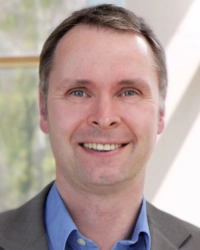 Full Professor of Molecular Pharmacology, Freie Universität Berlin & Director at the Leibniz Forschungsinstitut für Molekulare Pharmakologie (FMP), Germany.
Volker Haucke received his PhD summa cum laude in 1997 from the University of Basel, Switzerland. Following postdoctoral studies at Yale he started his own laboratory at the University of Göttingen. Since 2012 Volker Haucke is director at the Leibniz Forschungsinstitut für Molekulare Pharmacologie (FMP), full professor of molecular pharmacology at FU Berlin and a member of the NeuroCure Cluster of Excellence.
The focus of research in his laboratory is the dissection of the molecular mechanisms of endocytosis and endolysosomal membrane dynamics and its role in the nervous system and in neurological diseases using biochemical and cell biological approaches, electrophysiology, chemical biology, super-resolution and electron microscopy as well as genetics.
Prof. Haucke is an elected member of the European Molecular Biology Organisation (EMBO), the Academy of Europe (AE), the German National Academy of Science Leopoldina, and the Berlin-Brandenburg Academy of Science (BBAW). He has received the Avanti Award of the American Society for Biochemistry and Molecular Biology (ASBMB) 2017, the Feldberg Prize for Research in Physiology and Pharmacology 2020 and the Gottfried-Wilhelm-Leibniz Prize 2025 of the DFG.
Full Professor of Molecular Pharmacology, Freie Universität Berlin & Director at the Leibniz Forschungsinstitut für Molekulare Pharmakologie (FMP), Germany.
Volker Haucke received his PhD summa cum laude in 1997 from the University of Basel, Switzerland. Following postdoctoral studies at Yale he started his own laboratory at the University of Göttingen. Since 2012 Volker Haucke is director at the Leibniz Forschungsinstitut für Molekulare Pharmacologie (FMP), full professor of molecular pharmacology at FU Berlin and a member of the NeuroCure Cluster of Excellence.
The focus of research in his laboratory is the dissection of the molecular mechanisms of endocytosis and endolysosomal membrane dynamics and its role in the nervous system and in neurological diseases using biochemical and cell biological approaches, electrophysiology, chemical biology, super-resolution and electron microscopy as well as genetics.
Prof. Haucke is an elected member of the European Molecular Biology Organisation (EMBO), the Academy of Europe (AE), the German National Academy of Science Leopoldina, and the Berlin-Brandenburg Academy of Science (BBAW). He has received the Avanti Award of the American Society for Biochemistry and Molecular Biology (ASBMB) 2017, the Feldberg Prize for Research in Physiology and Pharmacology 2020 and the Gottfried-Wilhelm-Leibniz Prize 2025 of the DFG.
 Full Professor of Molecular Pharmacology, Freie Universität Berlin & Director at the Leibniz Forschungsinstitut für Molekulare Pharmakologie (FMP), Germany.
Volker Haucke received his PhD summa cum laude in 1997 from the University of Basel, Switzerland. Following postdoctoral studies at Yale he started his own laboratory at the University of Göttingen. Since 2012 Volker Haucke is director at the Leibniz Forschungsinstitut für Molekulare Pharmacologie (FMP), full professor of molecular pharmacology at FU Berlin and a member of the NeuroCure Cluster of Excellence.
The focus of research in his laboratory is the dissection of the molecular mechanisms of endocytosis and endolysosomal membrane dynamics and its role in the nervous system and in neurological diseases using biochemical and cell biological approaches, electrophysiology, chemical biology, super-resolution and electron microscopy as well as genetics.
Prof. Haucke is an elected member of the European Molecular Biology Organisation (EMBO), the Academy of Europe (AE), the German National Academy of Science Leopoldina, and the Berlin-Brandenburg Academy of Science (BBAW). He has received the Avanti Award of the American Society for Biochemistry and Molecular Biology (ASBMB) 2017, the Feldberg Prize for Research in Physiology and Pharmacology 2020 and the Gottfried-Wilhelm-Leibniz Prize 2025 of the DFG.
Full Professor of Molecular Pharmacology, Freie Universität Berlin & Director at the Leibniz Forschungsinstitut für Molekulare Pharmakologie (FMP), Germany.
Volker Haucke received his PhD summa cum laude in 1997 from the University of Basel, Switzerland. Following postdoctoral studies at Yale he started his own laboratory at the University of Göttingen. Since 2012 Volker Haucke is director at the Leibniz Forschungsinstitut für Molekulare Pharmacologie (FMP), full professor of molecular pharmacology at FU Berlin and a member of the NeuroCure Cluster of Excellence.
The focus of research in his laboratory is the dissection of the molecular mechanisms of endocytosis and endolysosomal membrane dynamics and its role in the nervous system and in neurological diseases using biochemical and cell biological approaches, electrophysiology, chemical biology, super-resolution and electron microscopy as well as genetics.
Prof. Haucke is an elected member of the European Molecular Biology Organisation (EMBO), the Academy of Europe (AE), the German National Academy of Science Leopoldina, and the Berlin-Brandenburg Academy of Science (BBAW). He has received the Avanti Award of the American Society for Biochemistry and Molecular Biology (ASBMB) 2017, the Feldberg Prize for Research in Physiology and Pharmacology 2020 and the Gottfried-Wilhelm-Leibniz Prize 2025 of the DFG.
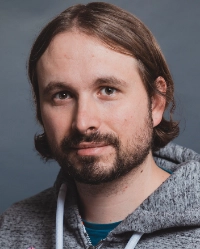 Guillaume Jacquemet earned his PhD from the University of Manchester, UK, and then carried postdoctoral training at the University of Turku, Finland. He currently serves as an Associate Professor at Åbo Akademi University. His laboratory uses and develops live imaging and image analysis methodologies to investigate how cancer cells interact with and respond to their surroundings during metastasis.
Guillaume Jacquemet earned his PhD from the University of Manchester, UK, and then carried postdoctoral training at the University of Turku, Finland. He currently serves as an Associate Professor at Åbo Akademi University. His laboratory uses and develops live imaging and image analysis methodologies to investigate how cancer cells interact with and respond to their surroundings during metastasis.
 Guillaume Jacquemet earned his PhD from the University of Manchester, UK, and then carried postdoctoral training at the University of Turku, Finland. He currently serves as an Associate Professor at Åbo Akademi University. His laboratory uses and develops live imaging and image analysis methodologies to investigate how cancer cells interact with and respond to their surroundings during metastasis.
Guillaume Jacquemet earned his PhD from the University of Manchester, UK, and then carried postdoctoral training at the University of Turku, Finland. He currently serves as an Associate Professor at Åbo Akademi University. His laboratory uses and develops live imaging and image analysis methodologies to investigate how cancer cells interact with and respond to their surroundings during metastasis.
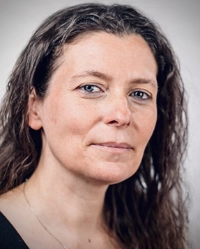 Ilaria has a long-standing interest in understanding the cancer cells functional heterogeneity driving their tumourigenic potential. After a PhD at the DKFZ in Heidelberg with Dr Tommasino, she began her animal studies in Prof Joerg Huelsken lab in 2004 at the ISREC, Federal University (EPFL) of Lausanne, Switzerland. During these Postdoc years she began to investigate the importance of tumour microenvironment during metastatic progression. Building on this expertise in mouse tumour models, Ilaria set up her laboratory at the Cancer Research UK London Research Institute in 2011 (now part of the Francis Crick Institute) and was promoted to Principal Group Leader at the Francis Crick Institute in 2018. She has focused the scope of investigation on the interaction that cancer cells have with the surrounding tissue cells during tumorigenesis and metastatic progression. A particular area of interest is the investigation of cancer-induced systemic changes that support metastatic spread, especially those mediated by neutrophils.
Ilaria has a long-standing interest in understanding the cancer cells functional heterogeneity driving their tumourigenic potential. After a PhD at the DKFZ in Heidelberg with Dr Tommasino, she began her animal studies in Prof Joerg Huelsken lab in 2004 at the ISREC, Federal University (EPFL) of Lausanne, Switzerland. During these Postdoc years she began to investigate the importance of tumour microenvironment during metastatic progression. Building on this expertise in mouse tumour models, Ilaria set up her laboratory at the Cancer Research UK London Research Institute in 2011 (now part of the Francis Crick Institute) and was promoted to Principal Group Leader at the Francis Crick Institute in 2018. She has focused the scope of investigation on the interaction that cancer cells have with the surrounding tissue cells during tumorigenesis and metastatic progression. A particular area of interest is the investigation of cancer-induced systemic changes that support metastatic spread, especially those mediated by neutrophils.
 Ilaria has a long-standing interest in understanding the cancer cells functional heterogeneity driving their tumourigenic potential. After a PhD at the DKFZ in Heidelberg with Dr Tommasino, she began her animal studies in Prof Joerg Huelsken lab in 2004 at the ISREC, Federal University (EPFL) of Lausanne, Switzerland. During these Postdoc years she began to investigate the importance of tumour microenvironment during metastatic progression. Building on this expertise in mouse tumour models, Ilaria set up her laboratory at the Cancer Research UK London Research Institute in 2011 (now part of the Francis Crick Institute) and was promoted to Principal Group Leader at the Francis Crick Institute in 2018. She has focused the scope of investigation on the interaction that cancer cells have with the surrounding tissue cells during tumorigenesis and metastatic progression. A particular area of interest is the investigation of cancer-induced systemic changes that support metastatic spread, especially those mediated by neutrophils.
Ilaria has a long-standing interest in understanding the cancer cells functional heterogeneity driving their tumourigenic potential. After a PhD at the DKFZ in Heidelberg with Dr Tommasino, she began her animal studies in Prof Joerg Huelsken lab in 2004 at the ISREC, Federal University (EPFL) of Lausanne, Switzerland. During these Postdoc years she began to investigate the importance of tumour microenvironment during metastatic progression. Building on this expertise in mouse tumour models, Ilaria set up her laboratory at the Cancer Research UK London Research Institute in 2011 (now part of the Francis Crick Institute) and was promoted to Principal Group Leader at the Francis Crick Institute in 2018. She has focused the scope of investigation on the interaction that cancer cells have with the surrounding tissue cells during tumorigenesis and metastatic progression. A particular area of interest is the investigation of cancer-induced systemic changes that support metastatic spread, especially those mediated by neutrophils.
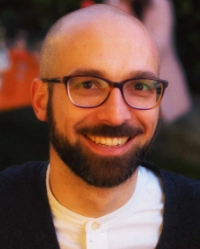 Dr. Montagner is Assistant Professor of Histology, Cell Biology and Embriology at the University of Padua (Dept. of Molecular Medicine). His research focuses on the influence of the microenvironment on cellular behaviour in normal physiology and in pathological contexts such as cancer dissemination. In particular, Dr. Montagner's laboratory is dedicated to the discovery of vulnerabilities in indolent disseminated breast cancer cells prior to metastasis. As a PhD student in the laboratory of Prof. Stefano Piccolo, he studied the signalling pathways involved in the early stages of amphibian embryogenesis as well as in cancer metastasis. He then moved to the laboratory of Dr. Erik Sahai at the Francis Crick Institute, where he developed an organotypic lung system to study non-cell-autonomous survival mechanisms of disseminated dormant cancer cells. At present, Dr Montager's research is focused on the genetic, epigenetic and microenvironmental mechanisms that underlie the success of disseminated breast cancer cells. Dr. Montagner's research at the University of Padua is currently funded by the Italian Association for Cancer Research (AIRC) and the STARS Grant of the University of Padua.
Dr. Montagner is Assistant Professor of Histology, Cell Biology and Embriology at the University of Padua (Dept. of Molecular Medicine). His research focuses on the influence of the microenvironment on cellular behaviour in normal physiology and in pathological contexts such as cancer dissemination. In particular, Dr. Montagner's laboratory is dedicated to the discovery of vulnerabilities in indolent disseminated breast cancer cells prior to metastasis. As a PhD student in the laboratory of Prof. Stefano Piccolo, he studied the signalling pathways involved in the early stages of amphibian embryogenesis as well as in cancer metastasis. He then moved to the laboratory of Dr. Erik Sahai at the Francis Crick Institute, where he developed an organotypic lung system to study non-cell-autonomous survival mechanisms of disseminated dormant cancer cells. At present, Dr Montager's research is focused on the genetic, epigenetic and microenvironmental mechanisms that underlie the success of disseminated breast cancer cells. Dr. Montagner's research at the University of Padua is currently funded by the Italian Association for Cancer Research (AIRC) and the STARS Grant of the University of Padua.
 Dr. Montagner is Assistant Professor of Histology, Cell Biology and Embriology at the University of Padua (Dept. of Molecular Medicine). His research focuses on the influence of the microenvironment on cellular behaviour in normal physiology and in pathological contexts such as cancer dissemination. In particular, Dr. Montagner's laboratory is dedicated to the discovery of vulnerabilities in indolent disseminated breast cancer cells prior to metastasis. As a PhD student in the laboratory of Prof. Stefano Piccolo, he studied the signalling pathways involved in the early stages of amphibian embryogenesis as well as in cancer metastasis. He then moved to the laboratory of Dr. Erik Sahai at the Francis Crick Institute, where he developed an organotypic lung system to study non-cell-autonomous survival mechanisms of disseminated dormant cancer cells. At present, Dr Montager's research is focused on the genetic, epigenetic and microenvironmental mechanisms that underlie the success of disseminated breast cancer cells. Dr. Montagner's research at the University of Padua is currently funded by the Italian Association for Cancer Research (AIRC) and the STARS Grant of the University of Padua.
Dr. Montagner is Assistant Professor of Histology, Cell Biology and Embriology at the University of Padua (Dept. of Molecular Medicine). His research focuses on the influence of the microenvironment on cellular behaviour in normal physiology and in pathological contexts such as cancer dissemination. In particular, Dr. Montagner's laboratory is dedicated to the discovery of vulnerabilities in indolent disseminated breast cancer cells prior to metastasis. As a PhD student in the laboratory of Prof. Stefano Piccolo, he studied the signalling pathways involved in the early stages of amphibian embryogenesis as well as in cancer metastasis. He then moved to the laboratory of Dr. Erik Sahai at the Francis Crick Institute, where he developed an organotypic lung system to study non-cell-autonomous survival mechanisms of disseminated dormant cancer cells. At present, Dr Montager's research is focused on the genetic, epigenetic and microenvironmental mechanisms that underlie the success of disseminated breast cancer cells. Dr. Montagner's research at the University of Padua is currently funded by the Italian Association for Cancer Research (AIRC) and the STARS Grant of the University of Padua.
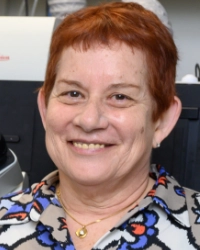 Prof. Orly Reiner is a renowned neuroscientist specializing in brain development and neurodevelopmental disorders. As a Professor at the Weizmann Institute of Science, her lab investigates the cellular and molecular mechanisms driving cortical development and related malformations.
Prof. Orly Reiner is a renowned neuroscientist specializing in brain development and neurodevelopmental disorders. As a Professor at the Weizmann Institute of Science, her lab investigates the cellular and molecular mechanisms driving cortical development and related malformations.
Prof. Reiner’s groundbreaking work identified LIS1, a gene mutated in lissencephaly, a severe brain disorder characterized by a smooth cortical surface. Her research has illuminated LIS1’s roles in neuronal migration, mitotic spindle orientation, RNA binding and splicing, and cellular physical properties, advancing understanding of brain malformations like microcephaly and lissencephaly. Her lab has also developed innovative stem-cell-based models, including bioengineered organoids, to study these disorders.
A pioneer in integrating genetics, cell biology, and advanced imaging, Prof. Reiner’s work reveals the interplay between cytoskeletal dynamics, cell polarity, and tissue mechanics. Through global collaborations, she continues to uncover fundamental mechanisms of neurodevelopment and their relevance to brain disorders.
 Prof. Orly Reiner is a renowned neuroscientist specializing in brain development and neurodevelopmental disorders. As a Professor at the Weizmann Institute of Science, her lab investigates the cellular and molecular mechanisms driving cortical development and related malformations.
Prof. Orly Reiner is a renowned neuroscientist specializing in brain development and neurodevelopmental disorders. As a Professor at the Weizmann Institute of Science, her lab investigates the cellular and molecular mechanisms driving cortical development and related malformations.
Prof. Reiner’s groundbreaking work identified LIS1, a gene mutated in lissencephaly, a severe brain disorder characterized by a smooth cortical surface. Her research has illuminated LIS1’s roles in neuronal migration, mitotic spindle orientation, RNA binding and splicing, and cellular physical properties, advancing understanding of brain malformations like microcephaly and lissencephaly. Her lab has also developed innovative stem-cell-based models, including bioengineered organoids, to study these disorders.
A pioneer in integrating genetics, cell biology, and advanced imaging, Prof. Reiner’s work reveals the interplay between cytoskeletal dynamics, cell polarity, and tissue mechanics. Through global collaborations, she continues to uncover fundamental mechanisms of neurodevelopment and their relevance to brain disorders.
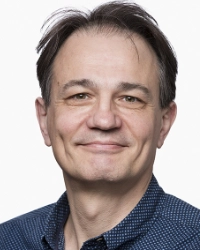 Professor Schiavo is Deputy Director of the Queen Square Institute of Neurology, a UK Dementia Research Institute Investigator and the academic lead of the Alzheimer’s Research UK Drug Discovery Institute at UCL. He has a long-term interest in the mechanisms of action of bacterial protein toxins, in particular tetanus and botulinum neurotoxins, and their exploitation as tools in cell biology. His group has clarified key steps in the mechanism of ligand entry at the neuromuscular junction and other synapses, and the recruitment of ligand-receptor complexes to signalling endosomes moving along the axonal retrograde transport route. This essential transport pathway, which delivers a variety of organelles and molecular complexes to the neuronal soma, is impaired in several nervous system pathologies, such as motor neuron disease, Alzheimer’s disease, and peripheral neuropathies. Professor Schiavo and his team are identifying novel pharmacological nodes to restore axonal transport of key organelles such as signalling endosomes, mitochondria, and lysosomes in neurons both in vitro and in vivo.
Professor Schiavo is Deputy Director of the Queen Square Institute of Neurology, a UK Dementia Research Institute Investigator and the academic lead of the Alzheimer’s Research UK Drug Discovery Institute at UCL. He has a long-term interest in the mechanisms of action of bacterial protein toxins, in particular tetanus and botulinum neurotoxins, and their exploitation as tools in cell biology. His group has clarified key steps in the mechanism of ligand entry at the neuromuscular junction and other synapses, and the recruitment of ligand-receptor complexes to signalling endosomes moving along the axonal retrograde transport route. This essential transport pathway, which delivers a variety of organelles and molecular complexes to the neuronal soma, is impaired in several nervous system pathologies, such as motor neuron disease, Alzheimer’s disease, and peripheral neuropathies. Professor Schiavo and his team are identifying novel pharmacological nodes to restore axonal transport of key organelles such as signalling endosomes, mitochondria, and lysosomes in neurons both in vitro and in vivo.
His research output account for more than 300 highly cited (>32,000; h-index 94) peer-reviewed publications.
 Professor Schiavo is Deputy Director of the Queen Square Institute of Neurology, a UK Dementia Research Institute Investigator and the academic lead of the Alzheimer’s Research UK Drug Discovery Institute at UCL. He has a long-term interest in the mechanisms of action of bacterial protein toxins, in particular tetanus and botulinum neurotoxins, and their exploitation as tools in cell biology. His group has clarified key steps in the mechanism of ligand entry at the neuromuscular junction and other synapses, and the recruitment of ligand-receptor complexes to signalling endosomes moving along the axonal retrograde transport route. This essential transport pathway, which delivers a variety of organelles and molecular complexes to the neuronal soma, is impaired in several nervous system pathologies, such as motor neuron disease, Alzheimer’s disease, and peripheral neuropathies. Professor Schiavo and his team are identifying novel pharmacological nodes to restore axonal transport of key organelles such as signalling endosomes, mitochondria, and lysosomes in neurons both in vitro and in vivo.
Professor Schiavo is Deputy Director of the Queen Square Institute of Neurology, a UK Dementia Research Institute Investigator and the academic lead of the Alzheimer’s Research UK Drug Discovery Institute at UCL. He has a long-term interest in the mechanisms of action of bacterial protein toxins, in particular tetanus and botulinum neurotoxins, and their exploitation as tools in cell biology. His group has clarified key steps in the mechanism of ligand entry at the neuromuscular junction and other synapses, and the recruitment of ligand-receptor complexes to signalling endosomes moving along the axonal retrograde transport route. This essential transport pathway, which delivers a variety of organelles and molecular complexes to the neuronal soma, is impaired in several nervous system pathologies, such as motor neuron disease, Alzheimer’s disease, and peripheral neuropathies. Professor Schiavo and his team are identifying novel pharmacological nodes to restore axonal transport of key organelles such as signalling endosomes, mitochondria, and lysosomes in neurons both in vitro and in vivo.
His research output account for more than 300 highly cited (>32,000; h-index 94) peer-reviewed publications.
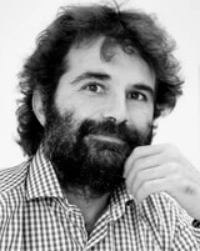 Carmine Settembre is a group leader at the Telethon Institute of Genetics and Medicine (TIGEM) in Naples and a Professor of Histology at the University of Naples Federico II. He is a member of the European Molecular Biology Organization (EMBO) and his research is supported by grants from the European Research Council (ERC). His lab focuses on studying the role of autophagy in organismal development and growth.
Carmine Settembre is a group leader at the Telethon Institute of Genetics and Medicine (TIGEM) in Naples and a Professor of Histology at the University of Naples Federico II. He is a member of the European Molecular Biology Organization (EMBO) and his research is supported by grants from the European Research Council (ERC). His lab focuses on studying the role of autophagy in organismal development and growth.
 Carmine Settembre is a group leader at the Telethon Institute of Genetics and Medicine (TIGEM) in Naples and a Professor of Histology at the University of Naples Federico II. He is a member of the European Molecular Biology Organization (EMBO) and his research is supported by grants from the European Research Council (ERC). His lab focuses on studying the role of autophagy in organismal development and growth.
Carmine Settembre is a group leader at the Telethon Institute of Genetics and Medicine (TIGEM) in Naples and a Professor of Histology at the University of Naples Federico II. He is a member of the European Molecular Biology Organization (EMBO) and his research is supported by grants from the European Research Council (ERC). His lab focuses on studying the role of autophagy in organismal development and growth.
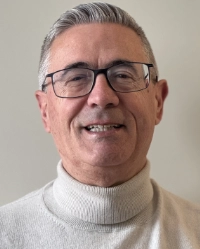 Carlo Tacchetti is Professor of Anatomy, Coordinator of AI in Healthcare Strategic Program (S-RACE), Coordinator of the International PhD in Molecular Medicine, Vita-Salute University San Raffaele, and Group leader, Cancer Imaging Unit, Experimental Imaging Centre, IRCCS San Raffaele Hospital, Milan.
Carlo Tacchetti is Professor of Anatomy, Coordinator of AI in Healthcare Strategic Program (S-RACE), Coordinator of the International PhD in Molecular Medicine, Vita-Salute University San Raffaele, and Group leader, Cancer Imaging Unit, Experimental Imaging Centre, IRCCS San Raffaele Hospital, Milan.
Education: Medical Degree (1982) cum laude; Specialization in Oncology (1987) cum laude, University Federico II, Naples (IT)
Research training abroad (5 years): Weizman Institute of Science, Rehovot (IL); NCI, NIH, Bethesda, Md, (USA); EMBL, Heidelberg (D); CNRS, École Normale Superiéure Paris (F).
Academic and scientific career in Italy:
Genova: Staff scientist - Natl. Inst. Cancer Res (1986-1989); Associate Professor (1991-2000), Full Professor (2000-2017), PI - IFOM-IEO campus (2002/2012), University of Genova.
Milan: Full professor, Vita-Salute University San Raffaele (2017-today); Director of the Experimental Imaging Centre IRCCS San Raffaele Hospital (2010-2024).
Major current research interest: Development of advanced bioimaging approaches, from microscopy to diagnostic imaging, applied to many fields of cancer research. Artificial Intelligence applied to healthcare: he has fostered a pivotal partnership between Microsoft and UniSR that generated an AI platform reaching the clinical stage for the prognostic risk calculation of Covid-19 patients (AI-SCORE) and the development and the use of a multilayered interoperability platform (S-RACE) to capture, classify and use multidimensional data from the hospital data banks to generate ML predictive AI models for different clinical needs.
 Carlo Tacchetti is Professor of Anatomy, Coordinator of AI in Healthcare Strategic Program (S-RACE), Coordinator of the International PhD in Molecular Medicine, Vita-Salute University San Raffaele, and Group leader, Cancer Imaging Unit, Experimental Imaging Centre, IRCCS San Raffaele Hospital, Milan.
Carlo Tacchetti is Professor of Anatomy, Coordinator of AI in Healthcare Strategic Program (S-RACE), Coordinator of the International PhD in Molecular Medicine, Vita-Salute University San Raffaele, and Group leader, Cancer Imaging Unit, Experimental Imaging Centre, IRCCS San Raffaele Hospital, Milan.
Education: Medical Degree (1982) cum laude; Specialization in Oncology (1987) cum laude, University Federico II, Naples (IT)
Research training abroad (5 years): Weizman Institute of Science, Rehovot (IL); NCI, NIH, Bethesda, Md, (USA); EMBL, Heidelberg (D); CNRS, École Normale Superiéure Paris (F).
Academic and scientific career in Italy:
Genova: Staff scientist - Natl. Inst. Cancer Res (1986-1989); Associate Professor (1991-2000), Full Professor (2000-2017), PI - IFOM-IEO campus (2002/2012), University of Genova.
Milan: Full professor, Vita-Salute University San Raffaele (2017-today); Director of the Experimental Imaging Centre IRCCS San Raffaele Hospital (2010-2024).
Major current research interest: Development of advanced bioimaging approaches, from microscopy to diagnostic imaging, applied to many fields of cancer research. Artificial Intelligence applied to healthcare: he has fostered a pivotal partnership between Microsoft and UniSR that generated an AI platform reaching the clinical stage for the prognostic risk calculation of Covid-19 patients (AI-SCORE) and the development and the use of a multilayered interoperability platform (S-RACE) to capture, classify and use multidimensional data from the hospital data banks to generate ML predictive AI models for different clinical needs.
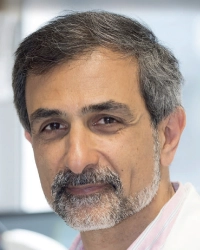 Prof. Shahragim Tajbakhsh obtained a Doctor of Philosophy degree in Biology from Carleton University, Canada (1988) working on the molecular biology of viruses - though he sometimes wonders if the "Philosophy" part just means endlessly questioning experiments. Following postdoctoral research at the Pasteur Institute he established an independent group in 2001 called "Stem Cells & Development" to study how muscle stem cells build and regenerate organs and tissues. His laboratory investigates stem cell properties in development and postnatally to understand how skeletal muscle forms, how it regenerates - and why it sometimes refuses to cooperate. His lab uses mouse genetics to reveal that muscle stem cell populations are not just diverse in function, but also, occasionally, full of surprises.
Prof. Shahragim Tajbakhsh obtained a Doctor of Philosophy degree in Biology from Carleton University, Canada (1988) working on the molecular biology of viruses - though he sometimes wonders if the "Philosophy" part just means endlessly questioning experiments. Following postdoctoral research at the Pasteur Institute he established an independent group in 2001 called "Stem Cells & Development" to study how muscle stem cells build and regenerate organs and tissues. His laboratory investigates stem cell properties in development and postnatally to understand how skeletal muscle forms, how it regenerates - and why it sometimes refuses to cooperate. His lab uses mouse genetics to reveal that muscle stem cell populations are not just diverse in function, but also, occasionally, full of surprises.
Prof. Tajbakhsh is an EMBO member, former Head of Dept. of Developmental & Stem Cell Biology, and co-Director of "Laboratory of Excellence" Consortium, REVIVE (2011-2027). He is member of scientific councils (e.g., French myopathy organisation), and presided on several SABs and journal editorial boards. He has participated in several EU consortia, which reassured him that all those years of pipetting were, in fact, leading somewhere, and received several awards including Chair of Excellence Louis Pasteur (Institut Pasteur, 2017) and the French Academy of Sciences. He received numerous competitive grants including ERC Advanced Grants on stem cell research, despite his own stem cells feeling increasingly less outstanding with time.
 Prof. Shahragim Tajbakhsh obtained a Doctor of Philosophy degree in Biology from Carleton University, Canada (1988) working on the molecular biology of viruses - though he sometimes wonders if the "Philosophy" part just means endlessly questioning experiments. Following postdoctoral research at the Pasteur Institute he established an independent group in 2001 called "Stem Cells & Development" to study how muscle stem cells build and regenerate organs and tissues. His laboratory investigates stem cell properties in development and postnatally to understand how skeletal muscle forms, how it regenerates - and why it sometimes refuses to cooperate. His lab uses mouse genetics to reveal that muscle stem cell populations are not just diverse in function, but also, occasionally, full of surprises.
Prof. Shahragim Tajbakhsh obtained a Doctor of Philosophy degree in Biology from Carleton University, Canada (1988) working on the molecular biology of viruses - though he sometimes wonders if the "Philosophy" part just means endlessly questioning experiments. Following postdoctoral research at the Pasteur Institute he established an independent group in 2001 called "Stem Cells & Development" to study how muscle stem cells build and regenerate organs and tissues. His laboratory investigates stem cell properties in development and postnatally to understand how skeletal muscle forms, how it regenerates - and why it sometimes refuses to cooperate. His lab uses mouse genetics to reveal that muscle stem cell populations are not just diverse in function, but also, occasionally, full of surprises.
Prof. Tajbakhsh is an EMBO member, former Head of Dept. of Developmental & Stem Cell Biology, and co-Director of "Laboratory of Excellence" Consortium, REVIVE (2011-2027). He is member of scientific councils (e.g., French myopathy organisation), and presided on several SABs and journal editorial boards. He has participated in several EU consortia, which reassured him that all those years of pipetting were, in fact, leading somewhere, and received several awards including Chair of Excellence Louis Pasteur (Institut Pasteur, 2017) and the French Academy of Sciences. He received numerous competitive grants including ERC Advanced Grants on stem cell research, despite his own stem cells feeling increasingly less outstanding with time.
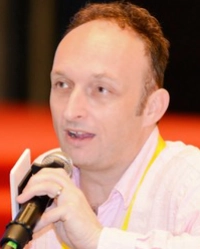 William has been a Scientific Editor at The EMBO Journal since 2021, where he focuses on selecting manuscripts for publication and overseeing the peer review process.
William has been a Scientific Editor at The EMBO Journal since 2021, where he focuses on selecting manuscripts for publication and overseeing the peer review process.
He started his scientific career with a PhD at Bristol University before tackling research projects in Cambridge, UK and Freiburg, Germany. After these post-docs, William stayed at Freibrg University where he habilitated, whilst working on cell polarity in plants.
At The EMBO Journal, William primarily handles manuscripts on membrane trafficking, autophagy, plant biology and autophagy. William is also an EMBO trainer, taking courses on Research Integrity, Communicating Science and Structuring your Manuscript.
 William has been a Scientific Editor at The EMBO Journal since 2021, where he focuses on selecting manuscripts for publication and overseeing the peer review process.
William has been a Scientific Editor at The EMBO Journal since 2021, where he focuses on selecting manuscripts for publication and overseeing the peer review process.
He started his scientific career with a PhD at Bristol University before tackling research projects in Cambridge, UK and Freiburg, Germany. After these post-docs, William stayed at Freibrg University where he habilitated, whilst working on cell polarity in plants.
At The EMBO Journal, William primarily handles manuscripts on membrane trafficking, autophagy, plant biology and autophagy. William is also an EMBO trainer, taking courses on Research Integrity, Communicating Science and Structuring your Manuscript.
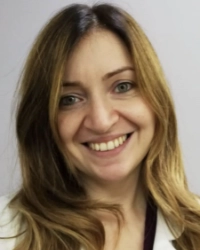 Dr. Rossella Venditti graduated in Medical Biotechnologies from the University of Naples Federico II. During the same year, she joined the lab of Professor Antonella De Matteis at the Mario Negri Sud Institute, where she started her PhD project studyng the mechanisms underlying the intracellular transport of procollagen from the endoplasmic reticulum, with a special interest on the TRAPP complex. During her PhD, she moved back to Naples, where she gained her PhD in Life Sciences from the Open University in 2012. She continued her carreer as a post-Doc in the lab of Prof. De Matteis at the TIGEM (Pozzuoli), getting interested in the understanding of molecular mechanisms regulating the membrane contact sites occurring between the ER and the TGN. Since January 2021, she is a researcher at the University of Naples Federico II where her research is mainly focused on evaluating the function, regulation and dynamics of several class of membrane contact sites in health and disease. She has obtained several grants, from MUR and AIRC.
Dr. Rossella Venditti graduated in Medical Biotechnologies from the University of Naples Federico II. During the same year, she joined the lab of Professor Antonella De Matteis at the Mario Negri Sud Institute, where she started her PhD project studyng the mechanisms underlying the intracellular transport of procollagen from the endoplasmic reticulum, with a special interest on the TRAPP complex. During her PhD, she moved back to Naples, where she gained her PhD in Life Sciences from the Open University in 2012. She continued her carreer as a post-Doc in the lab of Prof. De Matteis at the TIGEM (Pozzuoli), getting interested in the understanding of molecular mechanisms regulating the membrane contact sites occurring between the ER and the TGN. Since January 2021, she is a researcher at the University of Naples Federico II where her research is mainly focused on evaluating the function, regulation and dynamics of several class of membrane contact sites in health and disease. She has obtained several grants, from MUR and AIRC.
 Dr. Rossella Venditti graduated in Medical Biotechnologies from the University of Naples Federico II. During the same year, she joined the lab of Professor Antonella De Matteis at the Mario Negri Sud Institute, where she started her PhD project studyng the mechanisms underlying the intracellular transport of procollagen from the endoplasmic reticulum, with a special interest on the TRAPP complex. During her PhD, she moved back to Naples, where she gained her PhD in Life Sciences from the Open University in 2012. She continued her carreer as a post-Doc in the lab of Prof. De Matteis at the TIGEM (Pozzuoli), getting interested in the understanding of molecular mechanisms regulating the membrane contact sites occurring between the ER and the TGN. Since January 2021, she is a researcher at the University of Naples Federico II where her research is mainly focused on evaluating the function, regulation and dynamics of several class of membrane contact sites in health and disease. She has obtained several grants, from MUR and AIRC.
Dr. Rossella Venditti graduated in Medical Biotechnologies from the University of Naples Federico II. During the same year, she joined the lab of Professor Antonella De Matteis at the Mario Negri Sud Institute, where she started her PhD project studyng the mechanisms underlying the intracellular transport of procollagen from the endoplasmic reticulum, with a special interest on the TRAPP complex. During her PhD, she moved back to Naples, where she gained her PhD in Life Sciences from the Open University in 2012. She continued her carreer as a post-Doc in the lab of Prof. De Matteis at the TIGEM (Pozzuoli), getting interested in the understanding of molecular mechanisms regulating the membrane contact sites occurring between the ER and the TGN. Since January 2021, she is a researcher at the University of Naples Federico II where her research is mainly focused on evaluating the function, regulation and dynamics of several class of membrane contact sites in health and disease. She has obtained several grants, from MUR and AIRC.
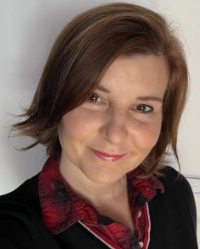 Danijela Matic Vignjevic was trained as a molecular biologist at the University of Belgrade, Serbia, and the University of Wisconsin-Madison, USA. She completed her PhD in Cell Biology at Northwestern University, Chicago, where she studied the role of the actin cytoskeleton in cell migration. Following her PhD, she pursued postdoctoral research at Institut Curie, focusing on mouse models of colon cancer metastasis. In 2013, she established her independent research team at Institut Curie to study how epithelial cells interact with their microenvironment in processes such as homeostasis, wound repair, and cancer invasion. Her research strategy combines cell biology and mechanobiology techniques, coupled with advanced live-cell imaging, using various model systems, including 2D and 3D in vitro cell cultures, ex vivo tissue slices, and transgenic mouse models.
Danijela Matic Vignjevic was trained as a molecular biologist at the University of Belgrade, Serbia, and the University of Wisconsin-Madison, USA. She completed her PhD in Cell Biology at Northwestern University, Chicago, where she studied the role of the actin cytoskeleton in cell migration. Following her PhD, she pursued postdoctoral research at Institut Curie, focusing on mouse models of colon cancer metastasis. In 2013, she established her independent research team at Institut Curie to study how epithelial cells interact with their microenvironment in processes such as homeostasis, wound repair, and cancer invasion. Her research strategy combines cell biology and mechanobiology techniques, coupled with advanced live-cell imaging, using various model systems, including 2D and 3D in vitro cell cultures, ex vivo tissue slices, and transgenic mouse models.
 Danijela Matic Vignjevic was trained as a molecular biologist at the University of Belgrade, Serbia, and the University of Wisconsin-Madison, USA. She completed her PhD in Cell Biology at Northwestern University, Chicago, where she studied the role of the actin cytoskeleton in cell migration. Following her PhD, she pursued postdoctoral research at Institut Curie, focusing on mouse models of colon cancer metastasis. In 2013, she established her independent research team at Institut Curie to study how epithelial cells interact with their microenvironment in processes such as homeostasis, wound repair, and cancer invasion. Her research strategy combines cell biology and mechanobiology techniques, coupled with advanced live-cell imaging, using various model systems, including 2D and 3D in vitro cell cultures, ex vivo tissue slices, and transgenic mouse models.
Danijela Matic Vignjevic was trained as a molecular biologist at the University of Belgrade, Serbia, and the University of Wisconsin-Madison, USA. She completed her PhD in Cell Biology at Northwestern University, Chicago, where she studied the role of the actin cytoskeleton in cell migration. Following her PhD, she pursued postdoctoral research at Institut Curie, focusing on mouse models of colon cancer metastasis. In 2013, she established her independent research team at Institut Curie to study how epithelial cells interact with their microenvironment in processes such as homeostasis, wound repair, and cancer invasion. Her research strategy combines cell biology and mechanobiology techniques, coupled with advanced live-cell imaging, using various model systems, including 2D and 3D in vitro cell cultures, ex vivo tissue slices, and transgenic mouse models.
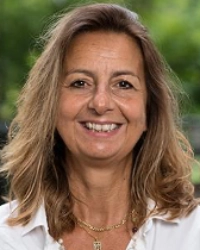 Professor Chiara Zurzolo, MD, PhD, is the Head of the Membrane Trafficking and Pathogenesis Unit and Director of the Brain Connectivity and Neurodegenerative Diseases Research Program at the Institut Pasteur in Paris. Her research focuses on the mechanisms of protein trafficking in health and disease, with an emphasis on neurodegenerative diseases (NDs) and brain tumors. Professor Zurzolo is widely recognized as a pioneer in the study of Tunneling Nanotubes (TNTs), which she characterized both in vitro and in vivo, uncovering their role in facilitating the intercellular transfer of prions and amyloids in NDs.
Professor Chiara Zurzolo, MD, PhD, is the Head of the Membrane Trafficking and Pathogenesis Unit and Director of the Brain Connectivity and Neurodegenerative Diseases Research Program at the Institut Pasteur in Paris. Her research focuses on the mechanisms of protein trafficking in health and disease, with an emphasis on neurodegenerative diseases (NDs) and brain tumors. Professor Zurzolo is widely recognized as a pioneer in the study of Tunneling Nanotubes (TNTs), which she characterized both in vitro and in vivo, uncovering their role in facilitating the intercellular transfer of prions and amyloids in NDs.
She received her MD and then PhD in molecular and cell biology from the University of Naples Federico II. She then obtained a postdoctoral fellowship to spend four years at Cornell Medical School, New York where she uncovered some of the mechanisms of apical protein trafficking in polarized epithelial cells. In 1995, she returned to Naples to establish her laboratory at the Faculty of Medicine and Surgery at Naples University Federico II as a professor of Cell Biology.
In 2015, she was elected member of the European Molecular Biology Organization (EMBO) and promoted Professor at Institut Pasteur. In 2019, she was a visiting scholar at Harvard University, sponsored by the Radcliffe Fellowship. In 2023 she was elected member of Academia Europaea. Her international reputation leads her to conferences and seminars all over the world. She is also very involved in teaching and organizing national/international conferences and courses.
 Professor Chiara Zurzolo, MD, PhD, is the Head of the Membrane Trafficking and Pathogenesis Unit and Director of the Brain Connectivity and Neurodegenerative Diseases Research Program at the Institut Pasteur in Paris. Her research focuses on the mechanisms of protein trafficking in health and disease, with an emphasis on neurodegenerative diseases (NDs) and brain tumors. Professor Zurzolo is widely recognized as a pioneer in the study of Tunneling Nanotubes (TNTs), which she characterized both in vitro and in vivo, uncovering their role in facilitating the intercellular transfer of prions and amyloids in NDs.
Professor Chiara Zurzolo, MD, PhD, is the Head of the Membrane Trafficking and Pathogenesis Unit and Director of the Brain Connectivity and Neurodegenerative Diseases Research Program at the Institut Pasteur in Paris. Her research focuses on the mechanisms of protein trafficking in health and disease, with an emphasis on neurodegenerative diseases (NDs) and brain tumors. Professor Zurzolo is widely recognized as a pioneer in the study of Tunneling Nanotubes (TNTs), which she characterized both in vitro and in vivo, uncovering their role in facilitating the intercellular transfer of prions and amyloids in NDs.
She received her MD and then PhD in molecular and cell biology from the University of Naples Federico II. She then obtained a postdoctoral fellowship to spend four years at Cornell Medical School, New York where she uncovered some of the mechanisms of apical protein trafficking in polarized epithelial cells. In 1995, she returned to Naples to establish her laboratory at the Faculty of Medicine and Surgery at Naples University Federico II as a professor of Cell Biology.
In 2015, she was elected member of the European Molecular Biology Organization (EMBO) and promoted Professor at Institut Pasteur. In 2019, she was a visiting scholar at Harvard University, sponsored by the Radcliffe Fellowship. In 2023 she was elected member of Academia Europaea. Her international reputation leads her to conferences and seminars all over the world. She is also very involved in teaching and organizing national/international conferences and courses.